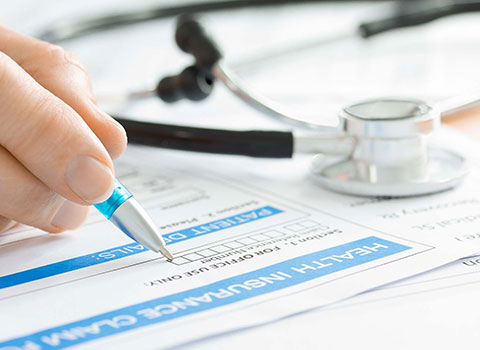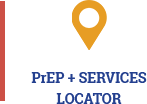 https://carethatfitsyou.org/wp-content/uploads/2023/01/CTFY-Web-image-8315_Undetectable.jpg
325
570
Admin
https://carethatfitsyou.org/wp-content/uploads/2020/04/care-that-fits-you.png
Admin2024-05-20 20:01:352024-06-10 19:21:29Información de la Mpox
https://carethatfitsyou.org/wp-content/uploads/2023/01/CTFY-Web-image-8315_Undetectable.jpg
325
570
Admin
https://carethatfitsyou.org/wp-content/uploads/2020/04/care-that-fits-you.png
Admin2024-05-20 20:01:352024-06-10 19:21:29Información de la Mpox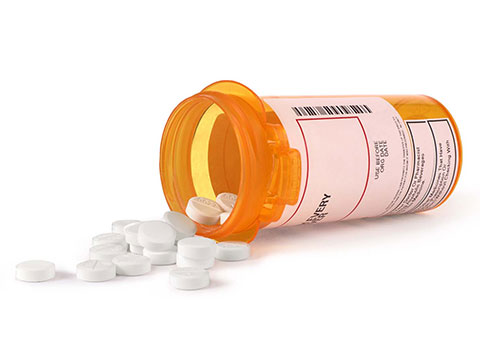
PrEP vs PEP: What’s the difference?
PrEP (pre-exposure prophylaxis) and PEP (post-exposure prophylaxis) are medications that prevent HIV infection in different ways. Let’s break down the differences between PrEP and PEP.
When do I take PrEP or PEP?
PrEP is medication you can take to prevent HIV infection, when taken as prescribed. There are two options for taking PrEP: a once-daily pill OR an injectable medication that must be administered—that is, injected into your buttocks—by a healthcare provider once a month for the first two months and then once every other month after that (or 6 times a year). The injectable medication (Apretude) is expected to be available early 2022.
PEP is taken after possible exposure to HIV. PEP must be started within 72 hours (the earlier, the better!) of possible exposure to HIV. PEP is taken once every day for 28 days.
Should I take PrEP or PEP?
PrEP is for people who are HIV-negative, but who are at risk for getting HIV either through sex or drug use.
PEP is also for people who are HIV-negative, but who may have had a one-time exposure to HIV through sexual activity, sexual assault, or drug use.
Are PrEP and PEP effective?
PrEP is one of the most effective ways to prevent HIV. In fact, taking PrEP can be even more effective than condoms, but you must take it as prescribed. (It’s still a good idea to use condoms while on PrEP to protect against STDs like chlamydia, gonorrhea, and syphilis.)
PEP is also extremely effective at preventing HIV. But you must take PEP within 72 hours of possible exposure to the virus. After 72 hours, PEP doesn’t work.
Where do I get PrEP and PEP?
PrEP isn’t available over the counter. It must be prescribed by a healthcare provider. Don’t have a doctor? Search for a provider near you.
If you are interested in PrEP but don’t know where to go or are worried about the cost, the PrEPDAP program may be able to help.
PEP also requires a prescription from a doctor. You can also visit an urgent care center or emergency room within 72 hours of possible exposure to HIV. If you don’t have insurance, or if you have insurance but can’t afford the co-pays for PEP medications, the nPEP Program may be able to cover the cost.
 https://carethatfitsyou.org/wp-content/uploads/2023/01/CTFY-Web-image-8315_Undetectable.jpg
325
570
Admin
https://carethatfitsyou.org/wp-content/uploads/2020/04/care-that-fits-you.png
Admin2024-05-20 20:01:352024-06-10 19:21:29Información de la Mpox
https://carethatfitsyou.org/wp-content/uploads/2023/01/CTFY-Web-image-8315_Undetectable.jpg
325
570
Admin
https://carethatfitsyou.org/wp-content/uploads/2020/04/care-that-fits-you.png
Admin2024-05-20 20:01:352024-06-10 19:21:29Información de la Mpox https://carethatfitsyou.org/wp-content/uploads/2023/01/CTFY-Web-image-7658-hepa.jpg
325
570
Admin
https://carethatfitsyou.org/wp-content/uploads/2020/04/care-that-fits-you.png
Admin2024-05-17 17:52:322024-05-28 21:22:00DoxyPEP: Find out if it’s right for you
https://carethatfitsyou.org/wp-content/uploads/2023/01/CTFY-Web-image-7658-hepa.jpg
325
570
Admin
https://carethatfitsyou.org/wp-content/uploads/2020/04/care-that-fits-you.png
Admin2024-05-17 17:52:322024-05-28 21:22:00DoxyPEP: Find out if it’s right for you https://carethatfitsyou.org/wp-content/uploads/2023/10/8375_Clean-2.jpg
565
1200
Admin
https://carethatfitsyou.org/wp-content/uploads/2020/04/care-that-fits-you.png
Admin2023-10-12 13:28:512023-12-15 17:42:27Shigella: Protect yourself and your partners
https://carethatfitsyou.org/wp-content/uploads/2023/10/8375_Clean-2.jpg
565
1200
Admin
https://carethatfitsyou.org/wp-content/uploads/2020/04/care-that-fits-you.png
Admin2023-10-12 13:28:512023-12-15 17:42:27Shigella: Protect yourself and your partners https://carethatfitsyou.org/wp-content/uploads/2023/01/is-there-a-cure-STDs-480x350-1.png
350
480
Administrator
https://carethatfitsyou.org/wp-content/uploads/2020/04/care-that-fits-you.png
Administrator2023-02-01 21:31:302023-02-03 17:45:21New Gonorrhea Strain: What You Need to Know
https://carethatfitsyou.org/wp-content/uploads/2023/01/is-there-a-cure-STDs-480x350-1.png
350
480
Administrator
https://carethatfitsyou.org/wp-content/uploads/2020/04/care-that-fits-you.png
Administrator2023-02-01 21:31:302023-02-03 17:45:21New Gonorrhea Strain: What You Need to Know https://carethatfitsyou.org/wp-content/uploads/2022/08/Mpox_SelfCare_ResizedPhotos_300x250_0723.jpg
250
300
Administrator
https://carethatfitsyou.org/wp-content/uploads/2020/04/care-that-fits-you.png
Administrator2022-08-18 16:22:192024-06-10 19:42:13Mpox Information
https://carethatfitsyou.org/wp-content/uploads/2022/08/Mpox_SelfCare_ResizedPhotos_300x250_0723.jpg
250
300
Administrator
https://carethatfitsyou.org/wp-content/uploads/2020/04/care-that-fits-you.png
Administrator2022-08-18 16:22:192024-06-10 19:42:13Mpox Information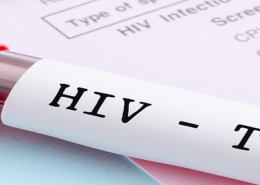 https://carethatfitsyou.org/wp-content/uploads/2022/04/HIV-testing.jpg
300
1000
Administrator
https://carethatfitsyou.org/wp-content/uploads/2020/04/care-that-fits-you.png
Administrator2022-04-19 15:23:482024-06-12 19:52:34What to Expect: HIV Testing
https://carethatfitsyou.org/wp-content/uploads/2022/04/HIV-testing.jpg
300
1000
Administrator
https://carethatfitsyou.org/wp-content/uploads/2020/04/care-that-fits-you.png
Administrator2022-04-19 15:23:482024-06-12 19:52:34What to Expect: HIV Testing https://carethatfitsyou.org/wp-content/uploads/2022/04/CTFYArticleHeader1_Small_1547949728.jpg
1707
2560
Administrator
https://carethatfitsyou.org/wp-content/uploads/2020/04/care-that-fits-you.png
Administrator2022-04-05 17:14:162023-12-29 19:26:11What to Expect: Starting PrEP
https://carethatfitsyou.org/wp-content/uploads/2022/04/CTFYArticleHeader1_Small_1547949728.jpg
1707
2560
Administrator
https://carethatfitsyou.org/wp-content/uploads/2020/04/care-that-fits-you.png
Administrator2022-04-05 17:14:162023-12-29 19:26:11What to Expect: Starting PrEP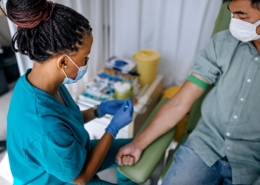 https://carethatfitsyou.org/wp-content/uploads/2022/04/CTFYArticleHeader2_Small_1338750215.jpg
1708
2560
Administrator
https://carethatfitsyou.org/wp-content/uploads/2020/04/care-that-fits-you.png
Administrator2022-04-05 17:14:022024-06-12 19:47:08What to Expect: Getting Tested for STDs/STIs
https://carethatfitsyou.org/wp-content/uploads/2022/04/CTFYArticleHeader2_Small_1338750215.jpg
1708
2560
Administrator
https://carethatfitsyou.org/wp-content/uploads/2020/04/care-that-fits-you.png
Administrator2022-04-05 17:14:022024-06-12 19:47:08What to Expect: Getting Tested for STDs/STIs https://carethatfitsyou.org/wp-content/uploads/2020/03/Recently-diagnosed-with-HIV-Ask-your-doctor-these-questions.jpg
350
480
Administrator
https://carethatfitsyou.org/wp-content/uploads/2020/04/care-that-fits-you.png
Administrator2022-01-31 19:30:162023-12-29 19:32:03Apretude – the first injectable PrEP
https://carethatfitsyou.org/wp-content/uploads/2020/03/Recently-diagnosed-with-HIV-Ask-your-doctor-these-questions.jpg
350
480
Administrator
https://carethatfitsyou.org/wp-content/uploads/2020/04/care-that-fits-you.png
Administrator2022-01-31 19:30:162023-12-29 19:32:03Apretude – the first injectable PrEP https://carethatfitsyou.org/wp-content/uploads/2021/06/40_b-1.jpg
350
480
Administrator
https://carethatfitsyou.org/wp-content/uploads/2020/04/care-that-fits-you.png
Administrator2021-06-11 19:31:522021-09-23 15:59:52Getting your partners treated for chlamydia
https://carethatfitsyou.org/wp-content/uploads/2021/06/40_b-1.jpg
350
480
Administrator
https://carethatfitsyou.org/wp-content/uploads/2020/04/care-that-fits-you.png
Administrator2021-06-11 19:31:522021-09-23 15:59:52Getting your partners treated for chlamydia https://carethatfitsyou.org/wp-content/uploads/2020/03/Talking-to-your-doctor-about-PrEP-f.jpg
350
480
ctfyadmin
https://carethatfitsyou.org/wp-content/uploads/2020/04/care-that-fits-you.png
ctfyadmin2020-03-23 21:37:482024-02-28 19:58:12Talking to your provider about PrEP
https://carethatfitsyou.org/wp-content/uploads/2020/03/Talking-to-your-doctor-about-PrEP-f.jpg
350
480
ctfyadmin
https://carethatfitsyou.org/wp-content/uploads/2020/04/care-that-fits-you.png
ctfyadmin2020-03-23 21:37:482024-02-28 19:58:12Talking to your provider about PrEP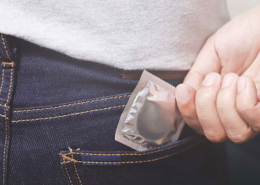 https://carethatfitsyou.org/wp-content/uploads/2020/03/How-do-I-choose-the-right-condom-f.jpg
350
480
ctfyadmin
https://carethatfitsyou.org/wp-content/uploads/2020/04/care-that-fits-you.png
ctfyadmin2020-03-23 21:26:382021-09-23 16:07:46How do I choose the right condom?
https://carethatfitsyou.org/wp-content/uploads/2020/03/How-do-I-choose-the-right-condom-f.jpg
350
480
ctfyadmin
https://carethatfitsyou.org/wp-content/uploads/2020/04/care-that-fits-you.png
ctfyadmin2020-03-23 21:26:382021-09-23 16:07:46How do I choose the right condom? https://carethatfitsyou.org/wp-content/uploads/2020/03/Conversation-starters-f.jpg
350
480
ctfyadmin
https://carethatfitsyou.org/wp-content/uploads/2020/04/care-that-fits-you.png
ctfyadmin2020-03-23 21:22:082021-09-23 16:08:20Conversation starters
https://carethatfitsyou.org/wp-content/uploads/2020/03/Conversation-starters-f.jpg
350
480
ctfyadmin
https://carethatfitsyou.org/wp-content/uploads/2020/04/care-that-fits-you.png
ctfyadmin2020-03-23 21:22:082021-09-23 16:08:20Conversation starters https://carethatfitsyou.org/wp-content/uploads/2020/03/Whats-the-deal-with-oral-sex-f.jpg
350
480
ctfyadmin
https://carethatfitsyou.org/wp-content/uploads/2020/04/care-that-fits-you.png
ctfyadmin2020-03-23 21:03:022021-09-23 16:08:54What’s the deal with oral sex?
https://carethatfitsyou.org/wp-content/uploads/2020/03/Whats-the-deal-with-oral-sex-f.jpg
350
480
ctfyadmin
https://carethatfitsyou.org/wp-content/uploads/2020/04/care-that-fits-you.png
ctfyadmin2020-03-23 21:03:022021-09-23 16:08:54What’s the deal with oral sex? https://carethatfitsyou.org/wp-content/uploads/2020/03/Tips-for-coming-out-to-your-doctor-f.jpg
350
480
ctfyadmin
https://carethatfitsyou.org/wp-content/uploads/2020/04/care-that-fits-you.png
ctfyadmin2020-03-23 20:59:162021-09-23 16:09:28Tips for coming out to your doctor
https://carethatfitsyou.org/wp-content/uploads/2020/03/Tips-for-coming-out-to-your-doctor-f.jpg
350
480
ctfyadmin
https://carethatfitsyou.org/wp-content/uploads/2020/04/care-that-fits-you.png
ctfyadmin2020-03-23 20:59:162021-09-23 16:09:28Tips for coming out to your doctor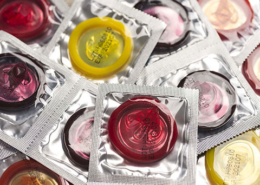 https://carethatfitsyou.org/wp-content/uploads/2020/03/Practicing-safer-sex-when-you-have-genital-herpes-f.jpg
350
480
ctfyadmin
https://carethatfitsyou.org/wp-content/uploads/2020/04/care-that-fits-you.png
ctfyadmin2020-03-23 20:54:232021-09-23 15:03:04Practicing safer sex when you have genital herpes
https://carethatfitsyou.org/wp-content/uploads/2020/03/Practicing-safer-sex-when-you-have-genital-herpes-f.jpg
350
480
ctfyadmin
https://carethatfitsyou.org/wp-content/uploads/2020/04/care-that-fits-you.png
ctfyadmin2020-03-23 20:54:232021-09-23 15:03:04Practicing safer sex when you have genital herpes https://carethatfitsyou.org/wp-content/uploads/2020/03/You-tested-positive-for-gonorrhea-or-chlamydia-Whats-next-f.jpg
350
480
ctfyadmin
https://carethatfitsyou.org/wp-content/uploads/2020/04/care-that-fits-you.png
ctfyadmin2020-03-23 20:50:102021-09-23 15:03:46You tested positive for gonorrhea or chlamydia. What’s next?
https://carethatfitsyou.org/wp-content/uploads/2020/03/You-tested-positive-for-gonorrhea-or-chlamydia-Whats-next-f.jpg
350
480
ctfyadmin
https://carethatfitsyou.org/wp-content/uploads/2020/04/care-that-fits-you.png
ctfyadmin2020-03-23 20:50:102021-09-23 15:03:46You tested positive for gonorrhea or chlamydia. What’s next? https://carethatfitsyou.org/wp-content/uploads/2020/03/You-tested-positive-for-HIV-Now-what-f.jpg
350
480
ctfyadmin
https://carethatfitsyou.org/wp-content/uploads/2020/04/care-that-fits-you.png
ctfyadmin2020-03-23 20:45:282021-09-23 15:04:34You tested positive for HIV. Now what?
https://carethatfitsyou.org/wp-content/uploads/2020/03/You-tested-positive-for-HIV-Now-what-f.jpg
350
480
ctfyadmin
https://carethatfitsyou.org/wp-content/uploads/2020/04/care-that-fits-you.png
ctfyadmin2020-03-23 20:45:282021-09-23 15:04:34You tested positive for HIV. Now what? https://carethatfitsyou.org/wp-content/uploads/2020/03/Ask-for-these-tests-at-your-next-checkup-f.jpg
350
480
ctfyadmin
https://carethatfitsyou.org/wp-content/uploads/2020/04/care-that-fits-you.png
ctfyadmin2020-03-23 20:17:462023-11-13 03:15:47Ask for these tests at your next checkup
https://carethatfitsyou.org/wp-content/uploads/2020/03/Ask-for-these-tests-at-your-next-checkup-f.jpg
350
480
ctfyadmin
https://carethatfitsyou.org/wp-content/uploads/2020/04/care-that-fits-you.png
ctfyadmin2020-03-23 20:17:462023-11-13 03:15:47Ask for these tests at your next checkup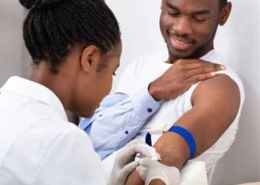 https://carethatfitsyou.org/wp-content/uploads/2020/03/Does-HIV-undetectable-mean-HIV-untransmittable-f3.jpg
350
480
ctfyadmin
https://carethatfitsyou.org/wp-content/uploads/2020/04/care-that-fits-you.png
ctfyadmin2020-03-23 20:13:492021-09-23 15:26:46Does HIV undetectable mean HIV untransmittable?
https://carethatfitsyou.org/wp-content/uploads/2020/03/Does-HIV-undetectable-mean-HIV-untransmittable-f3.jpg
350
480
ctfyadmin
https://carethatfitsyou.org/wp-content/uploads/2020/04/care-that-fits-you.png
ctfyadmin2020-03-23 20:13:492021-09-23 15:26:46Does HIV undetectable mean HIV untransmittable? https://carethatfitsyou.org/wp-content/uploads/2020/03/Eight-conversations-to-have-with-your-doctor-f.jpg
350
480
ctfyadmin
https://carethatfitsyou.org/wp-content/uploads/2020/04/care-that-fits-you.png
ctfyadmin2020-03-23 17:56:462021-09-23 15:28:17Eight conversations to have with your doctor
https://carethatfitsyou.org/wp-content/uploads/2020/03/Eight-conversations-to-have-with-your-doctor-f.jpg
350
480
ctfyadmin
https://carethatfitsyou.org/wp-content/uploads/2020/04/care-that-fits-you.png
ctfyadmin2020-03-23 17:56:462021-09-23 15:28:17Eight conversations to have with your doctor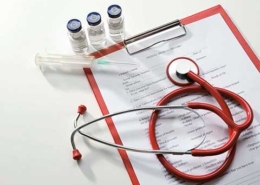 https://carethatfitsyou.org/wp-content/uploads/2020/03/Hep-A-B-C-Whats-the-difference-Light.jpg
350
480
ctfyadmin
https://carethatfitsyou.org/wp-content/uploads/2020/04/care-that-fits-you.png
ctfyadmin2020-03-23 17:29:052024-02-28 19:56:45Hep A, B, and C: What’s the difference?
https://carethatfitsyou.org/wp-content/uploads/2020/03/Hep-A-B-C-Whats-the-difference-Light.jpg
350
480
ctfyadmin
https://carethatfitsyou.org/wp-content/uploads/2020/04/care-that-fits-you.png
ctfyadmin2020-03-23 17:29:052024-02-28 19:56:45Hep A, B, and C: What’s the difference? https://carethatfitsyou.org/wp-content/uploads/2020/03/A-few-things-to-know-about-syphilis-f.jpg
350
480
ctfyadmin
https://carethatfitsyou.org/wp-content/uploads/2020/04/care-that-fits-you.png
ctfyadmin2020-03-23 16:42:362024-06-12 19:49:33A few things to know about syphilis
https://carethatfitsyou.org/wp-content/uploads/2020/03/A-few-things-to-know-about-syphilis-f.jpg
350
480
ctfyadmin
https://carethatfitsyou.org/wp-content/uploads/2020/04/care-that-fits-you.png
ctfyadmin2020-03-23 16:42:362024-06-12 19:49:33A few things to know about syphilis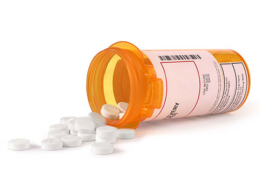 https://carethatfitsyou.org/wp-content/uploads/2020/03/PrEP-vs-PEP-Whats-the-difference-f.jpg
350
480
ctfyadmin
https://carethatfitsyou.org/wp-content/uploads/2020/04/care-that-fits-you.png
ctfyadmin2020-03-21 22:29:262023-12-15 18:19:24PrEP vs PEP: What’s the difference?
https://carethatfitsyou.org/wp-content/uploads/2020/03/PrEP-vs-PEP-Whats-the-difference-f.jpg
350
480
ctfyadmin
https://carethatfitsyou.org/wp-content/uploads/2020/04/care-that-fits-you.png
ctfyadmin2020-03-21 22:29:262023-12-15 18:19:24PrEP vs PEP: What’s the difference? https://carethatfitsyou.org/wp-content/uploads/2020/03/Talking-to-your-partner-about-safer-sex-f.jpg
350
480
ctfyadmin
https://carethatfitsyou.org/wp-content/uploads/2020/04/care-that-fits-you.png
ctfyadmin2020-03-21 22:23:442021-09-23 15:57:27Talking to your partner about safer sex
https://carethatfitsyou.org/wp-content/uploads/2020/03/Talking-to-your-partner-about-safer-sex-f.jpg
350
480
ctfyadmin
https://carethatfitsyou.org/wp-content/uploads/2020/04/care-that-fits-you.png
ctfyadmin2020-03-21 22:23:442021-09-23 15:57:27Talking to your partner about safer sex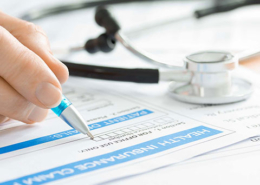 https://carethatfitsyou.org/wp-content/uploads/2020/03/How-to-pay-for-PrEP-f-1.jpg
350
480
ctfyadmin
https://carethatfitsyou.org/wp-content/uploads/2020/04/care-that-fits-you.png
ctfyadmin2020-03-13 19:18:212024-06-12 19:48:11How to pay for PrEP
https://carethatfitsyou.org/wp-content/uploads/2020/03/How-to-pay-for-PrEP-f-1.jpg
350
480
ctfyadmin
https://carethatfitsyou.org/wp-content/uploads/2020/04/care-that-fits-you.png
ctfyadmin2020-03-13 19:18:212024-06-12 19:48:11How to pay for PrEP https://carethatfitsyou.org/wp-content/uploads/2023/01/CTFY-Web-image-8315_Undetectable.jpg
325
570
Admin
https://carethatfitsyou.org/wp-content/uploads/2020/04/care-that-fits-you.png
Admin2024-05-20 20:01:352024-06-10 19:21:29Información de la Mpox
https://carethatfitsyou.org/wp-content/uploads/2023/01/CTFY-Web-image-8315_Undetectable.jpg
325
570
Admin
https://carethatfitsyou.org/wp-content/uploads/2020/04/care-that-fits-you.png
Admin2024-05-20 20:01:352024-06-10 19:21:29Información de la Mpox https://carethatfitsyou.org/wp-content/uploads/2023/01/CTFY-Web-image-7658-hepa.jpg
325
570
Admin
https://carethatfitsyou.org/wp-content/uploads/2020/04/care-that-fits-you.png
Admin2024-05-17 17:52:322024-05-28 21:22:00DoxyPEP: Find out if it’s right for you
https://carethatfitsyou.org/wp-content/uploads/2023/01/CTFY-Web-image-7658-hepa.jpg
325
570
Admin
https://carethatfitsyou.org/wp-content/uploads/2020/04/care-that-fits-you.png
Admin2024-05-17 17:52:322024-05-28 21:22:00DoxyPEP: Find out if it’s right for you https://carethatfitsyou.org/wp-content/uploads/2023/10/8375_Clean-2.jpg
565
1200
Admin
https://carethatfitsyou.org/wp-content/uploads/2020/04/care-that-fits-you.png
Admin2023-10-12 13:28:512023-12-15 17:42:27Shigella: Protect yourself and your partners
https://carethatfitsyou.org/wp-content/uploads/2023/10/8375_Clean-2.jpg
565
1200
Admin
https://carethatfitsyou.org/wp-content/uploads/2020/04/care-that-fits-you.png
Admin2023-10-12 13:28:512023-12-15 17:42:27Shigella: Protect yourself and your partners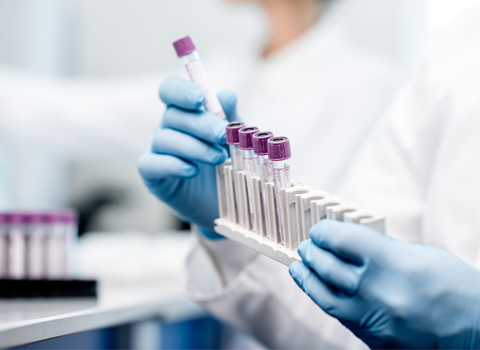 https://carethatfitsyou.org/wp-content/uploads/2023/01/is-there-a-cure-STDs-480x350-1.png
350
480
Administrator
https://carethatfitsyou.org/wp-content/uploads/2020/04/care-that-fits-you.png
Administrator2023-02-01 21:31:302023-02-03 17:45:21New Gonorrhea Strain: What You Need to Know
https://carethatfitsyou.org/wp-content/uploads/2023/01/is-there-a-cure-STDs-480x350-1.png
350
480
Administrator
https://carethatfitsyou.org/wp-content/uploads/2020/04/care-that-fits-you.png
Administrator2023-02-01 21:31:302023-02-03 17:45:21New Gonorrhea Strain: What You Need to Know https://carethatfitsyou.org/wp-content/uploads/2022/08/Mpox_SelfCare_ResizedPhotos_300x250_0723.jpg
250
300
Administrator
https://carethatfitsyou.org/wp-content/uploads/2020/04/care-that-fits-you.png
Administrator2022-08-18 16:22:192024-06-10 19:42:13Mpox Information
https://carethatfitsyou.org/wp-content/uploads/2022/08/Mpox_SelfCare_ResizedPhotos_300x250_0723.jpg
250
300
Administrator
https://carethatfitsyou.org/wp-content/uploads/2020/04/care-that-fits-you.png
Administrator2022-08-18 16:22:192024-06-10 19:42:13Mpox Information https://carethatfitsyou.org/wp-content/uploads/2022/04/HIV-testing.jpg
300
1000
Administrator
https://carethatfitsyou.org/wp-content/uploads/2020/04/care-that-fits-you.png
Administrator2022-04-19 15:23:482024-06-12 19:52:34What to Expect: HIV Testing
https://carethatfitsyou.org/wp-content/uploads/2022/04/HIV-testing.jpg
300
1000
Administrator
https://carethatfitsyou.org/wp-content/uploads/2020/04/care-that-fits-you.png
Administrator2022-04-19 15:23:482024-06-12 19:52:34What to Expect: HIV Testing https://carethatfitsyou.org/wp-content/uploads/2022/04/CTFYArticleHeader1_Small_1547949728.jpg
1707
2560
Administrator
https://carethatfitsyou.org/wp-content/uploads/2020/04/care-that-fits-you.png
Administrator2022-04-05 17:14:162023-12-29 19:26:11What to Expect: Starting PrEP
https://carethatfitsyou.org/wp-content/uploads/2022/04/CTFYArticleHeader1_Small_1547949728.jpg
1707
2560
Administrator
https://carethatfitsyou.org/wp-content/uploads/2020/04/care-that-fits-you.png
Administrator2022-04-05 17:14:162023-12-29 19:26:11What to Expect: Starting PrEP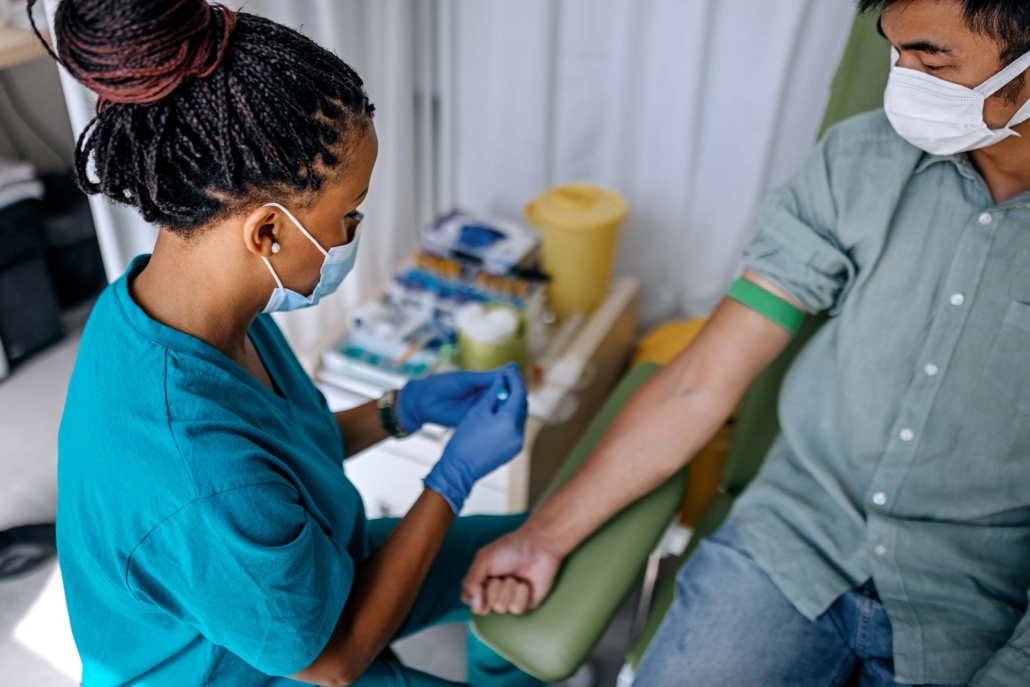 https://carethatfitsyou.org/wp-content/uploads/2022/04/CTFYArticleHeader2_Small_1338750215.jpg
1708
2560
Administrator
https://carethatfitsyou.org/wp-content/uploads/2020/04/care-that-fits-you.png
Administrator2022-04-05 17:14:022024-06-12 19:47:08What to Expect: Getting Tested for STDs/STIs
https://carethatfitsyou.org/wp-content/uploads/2022/04/CTFYArticleHeader2_Small_1338750215.jpg
1708
2560
Administrator
https://carethatfitsyou.org/wp-content/uploads/2020/04/care-that-fits-you.png
Administrator2022-04-05 17:14:022024-06-12 19:47:08What to Expect: Getting Tested for STDs/STIs https://carethatfitsyou.org/wp-content/uploads/2020/03/Recently-diagnosed-with-HIV-Ask-your-doctor-these-questions.jpg
350
480
Administrator
https://carethatfitsyou.org/wp-content/uploads/2020/04/care-that-fits-you.png
Administrator2022-01-31 19:30:162023-12-29 19:32:03Apretude – the first injectable PrEP
https://carethatfitsyou.org/wp-content/uploads/2020/03/Recently-diagnosed-with-HIV-Ask-your-doctor-these-questions.jpg
350
480
Administrator
https://carethatfitsyou.org/wp-content/uploads/2020/04/care-that-fits-you.png
Administrator2022-01-31 19:30:162023-12-29 19:32:03Apretude – the first injectable PrEP https://carethatfitsyou.org/wp-content/uploads/2021/06/40_b-1.jpg
350
480
Administrator
https://carethatfitsyou.org/wp-content/uploads/2020/04/care-that-fits-you.png
Administrator2021-06-11 19:31:522021-09-23 15:59:52Getting your partners treated for chlamydia
https://carethatfitsyou.org/wp-content/uploads/2021/06/40_b-1.jpg
350
480
Administrator
https://carethatfitsyou.org/wp-content/uploads/2020/04/care-that-fits-you.png
Administrator2021-06-11 19:31:522021-09-23 15:59:52Getting your partners treated for chlamydia https://carethatfitsyou.org/wp-content/uploads/2020/03/Talking-to-your-doctor-about-PrEP-f.jpg
350
480
ctfyadmin
https://carethatfitsyou.org/wp-content/uploads/2020/04/care-that-fits-you.png
ctfyadmin2020-03-23 21:37:482024-02-28 19:58:12Talking to your provider about PrEP
https://carethatfitsyou.org/wp-content/uploads/2020/03/Talking-to-your-doctor-about-PrEP-f.jpg
350
480
ctfyadmin
https://carethatfitsyou.org/wp-content/uploads/2020/04/care-that-fits-you.png
ctfyadmin2020-03-23 21:37:482024-02-28 19:58:12Talking to your provider about PrEP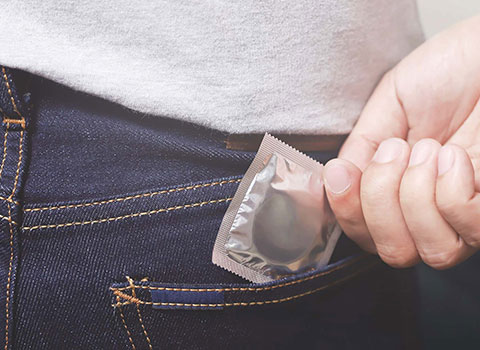 https://carethatfitsyou.org/wp-content/uploads/2020/03/How-do-I-choose-the-right-condom-f.jpg
350
480
ctfyadmin
https://carethatfitsyou.org/wp-content/uploads/2020/04/care-that-fits-you.png
ctfyadmin2020-03-23 21:26:382021-09-23 16:07:46How do I choose the right condom?
https://carethatfitsyou.org/wp-content/uploads/2020/03/How-do-I-choose-the-right-condom-f.jpg
350
480
ctfyadmin
https://carethatfitsyou.org/wp-content/uploads/2020/04/care-that-fits-you.png
ctfyadmin2020-03-23 21:26:382021-09-23 16:07:46How do I choose the right condom? https://carethatfitsyou.org/wp-content/uploads/2020/03/Conversation-starters-f.jpg
350
480
ctfyadmin
https://carethatfitsyou.org/wp-content/uploads/2020/04/care-that-fits-you.png
ctfyadmin2020-03-23 21:22:082021-09-23 16:08:20Conversation starters
https://carethatfitsyou.org/wp-content/uploads/2020/03/Conversation-starters-f.jpg
350
480
ctfyadmin
https://carethatfitsyou.org/wp-content/uploads/2020/04/care-that-fits-you.png
ctfyadmin2020-03-23 21:22:082021-09-23 16:08:20Conversation starters https://carethatfitsyou.org/wp-content/uploads/2020/03/Whats-the-deal-with-oral-sex-f.jpg
350
480
ctfyadmin
https://carethatfitsyou.org/wp-content/uploads/2020/04/care-that-fits-you.png
ctfyadmin2020-03-23 21:03:022021-09-23 16:08:54What’s the deal with oral sex?
https://carethatfitsyou.org/wp-content/uploads/2020/03/Whats-the-deal-with-oral-sex-f.jpg
350
480
ctfyadmin
https://carethatfitsyou.org/wp-content/uploads/2020/04/care-that-fits-you.png
ctfyadmin2020-03-23 21:03:022021-09-23 16:08:54What’s the deal with oral sex? https://carethatfitsyou.org/wp-content/uploads/2020/03/Tips-for-coming-out-to-your-doctor-f.jpg
350
480
ctfyadmin
https://carethatfitsyou.org/wp-content/uploads/2020/04/care-that-fits-you.png
ctfyadmin2020-03-23 20:59:162021-09-23 16:09:28Tips for coming out to your doctor
https://carethatfitsyou.org/wp-content/uploads/2020/03/Tips-for-coming-out-to-your-doctor-f.jpg
350
480
ctfyadmin
https://carethatfitsyou.org/wp-content/uploads/2020/04/care-that-fits-you.png
ctfyadmin2020-03-23 20:59:162021-09-23 16:09:28Tips for coming out to your doctor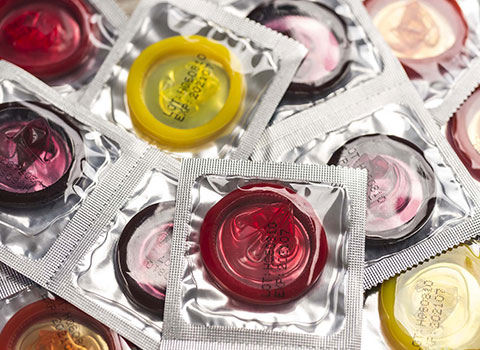 https://carethatfitsyou.org/wp-content/uploads/2020/03/Practicing-safer-sex-when-you-have-genital-herpes-f.jpg
350
480
ctfyadmin
https://carethatfitsyou.org/wp-content/uploads/2020/04/care-that-fits-you.png
ctfyadmin2020-03-23 20:54:232021-09-23 15:03:04Practicing safer sex when you have genital herpes
https://carethatfitsyou.org/wp-content/uploads/2020/03/Practicing-safer-sex-when-you-have-genital-herpes-f.jpg
350
480
ctfyadmin
https://carethatfitsyou.org/wp-content/uploads/2020/04/care-that-fits-you.png
ctfyadmin2020-03-23 20:54:232021-09-23 15:03:04Practicing safer sex when you have genital herpes https://carethatfitsyou.org/wp-content/uploads/2020/03/You-tested-positive-for-gonorrhea-or-chlamydia-Whats-next-f.jpg
350
480
ctfyadmin
https://carethatfitsyou.org/wp-content/uploads/2020/04/care-that-fits-you.png
ctfyadmin2020-03-23 20:50:102021-09-23 15:03:46You tested positive for gonorrhea or chlamydia. What’s next?
https://carethatfitsyou.org/wp-content/uploads/2020/03/You-tested-positive-for-gonorrhea-or-chlamydia-Whats-next-f.jpg
350
480
ctfyadmin
https://carethatfitsyou.org/wp-content/uploads/2020/04/care-that-fits-you.png
ctfyadmin2020-03-23 20:50:102021-09-23 15:03:46You tested positive for gonorrhea or chlamydia. What’s next?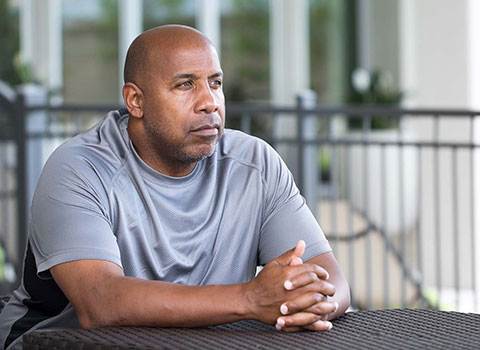 https://carethatfitsyou.org/wp-content/uploads/2020/03/You-tested-positive-for-HIV-Now-what-f.jpg
350
480
ctfyadmin
https://carethatfitsyou.org/wp-content/uploads/2020/04/care-that-fits-you.png
ctfyadmin2020-03-23 20:45:282021-09-23 15:04:34You tested positive for HIV. Now what?
https://carethatfitsyou.org/wp-content/uploads/2020/03/You-tested-positive-for-HIV-Now-what-f.jpg
350
480
ctfyadmin
https://carethatfitsyou.org/wp-content/uploads/2020/04/care-that-fits-you.png
ctfyadmin2020-03-23 20:45:282021-09-23 15:04:34You tested positive for HIV. Now what? https://carethatfitsyou.org/wp-content/uploads/2020/03/Ask-for-these-tests-at-your-next-checkup-f.jpg
350
480
ctfyadmin
https://carethatfitsyou.org/wp-content/uploads/2020/04/care-that-fits-you.png
ctfyadmin2020-03-23 20:17:462023-11-13 03:15:47Ask for these tests at your next checkup
https://carethatfitsyou.org/wp-content/uploads/2020/03/Ask-for-these-tests-at-your-next-checkup-f.jpg
350
480
ctfyadmin
https://carethatfitsyou.org/wp-content/uploads/2020/04/care-that-fits-you.png
ctfyadmin2020-03-23 20:17:462023-11-13 03:15:47Ask for these tests at your next checkup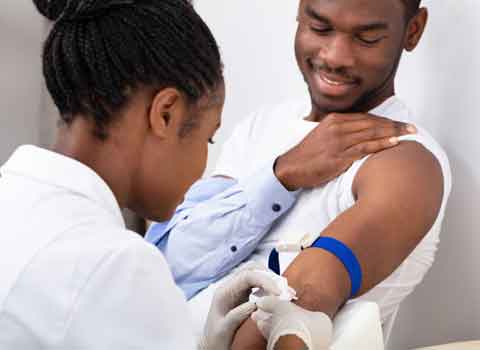 https://carethatfitsyou.org/wp-content/uploads/2020/03/Does-HIV-undetectable-mean-HIV-untransmittable-f3.jpg
350
480
ctfyadmin
https://carethatfitsyou.org/wp-content/uploads/2020/04/care-that-fits-you.png
ctfyadmin2020-03-23 20:13:492021-09-23 15:26:46Does HIV undetectable mean HIV untransmittable?
https://carethatfitsyou.org/wp-content/uploads/2020/03/Does-HIV-undetectable-mean-HIV-untransmittable-f3.jpg
350
480
ctfyadmin
https://carethatfitsyou.org/wp-content/uploads/2020/04/care-that-fits-you.png
ctfyadmin2020-03-23 20:13:492021-09-23 15:26:46Does HIV undetectable mean HIV untransmittable? https://carethatfitsyou.org/wp-content/uploads/2020/03/Eight-conversations-to-have-with-your-doctor-f.jpg
350
480
ctfyadmin
https://carethatfitsyou.org/wp-content/uploads/2020/04/care-that-fits-you.png
ctfyadmin2020-03-23 17:56:462021-09-23 15:28:17Eight conversations to have with your doctor
https://carethatfitsyou.org/wp-content/uploads/2020/03/Eight-conversations-to-have-with-your-doctor-f.jpg
350
480
ctfyadmin
https://carethatfitsyou.org/wp-content/uploads/2020/04/care-that-fits-you.png
ctfyadmin2020-03-23 17:56:462021-09-23 15:28:17Eight conversations to have with your doctor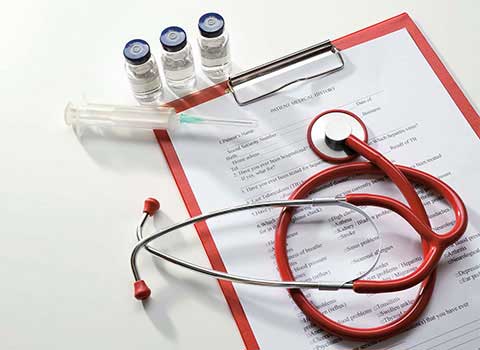 https://carethatfitsyou.org/wp-content/uploads/2020/03/Hep-A-B-C-Whats-the-difference-Light.jpg
350
480
ctfyadmin
https://carethatfitsyou.org/wp-content/uploads/2020/04/care-that-fits-you.png
ctfyadmin2020-03-23 17:29:052024-02-28 19:56:45Hep A, B, and C: What’s the difference?
https://carethatfitsyou.org/wp-content/uploads/2020/03/Hep-A-B-C-Whats-the-difference-Light.jpg
350
480
ctfyadmin
https://carethatfitsyou.org/wp-content/uploads/2020/04/care-that-fits-you.png
ctfyadmin2020-03-23 17:29:052024-02-28 19:56:45Hep A, B, and C: What’s the difference? https://carethatfitsyou.org/wp-content/uploads/2020/03/A-few-things-to-know-about-syphilis-f.jpg
350
480
ctfyadmin
https://carethatfitsyou.org/wp-content/uploads/2020/04/care-that-fits-you.png
ctfyadmin2020-03-23 16:42:362024-06-12 19:49:33A few things to know about syphilis
https://carethatfitsyou.org/wp-content/uploads/2020/03/A-few-things-to-know-about-syphilis-f.jpg
350
480
ctfyadmin
https://carethatfitsyou.org/wp-content/uploads/2020/04/care-that-fits-you.png
ctfyadmin2020-03-23 16:42:362024-06-12 19:49:33A few things to know about syphilis https://carethatfitsyou.org/wp-content/uploads/2020/03/PrEP-vs-PEP-Whats-the-difference-f.jpg
350
480
ctfyadmin
https://carethatfitsyou.org/wp-content/uploads/2020/04/care-that-fits-you.png
ctfyadmin2020-03-21 22:29:262023-12-15 18:19:24PrEP vs PEP: What’s the difference?
https://carethatfitsyou.org/wp-content/uploads/2020/03/PrEP-vs-PEP-Whats-the-difference-f.jpg
350
480
ctfyadmin
https://carethatfitsyou.org/wp-content/uploads/2020/04/care-that-fits-you.png
ctfyadmin2020-03-21 22:29:262023-12-15 18:19:24PrEP vs PEP: What’s the difference? https://carethatfitsyou.org/wp-content/uploads/2020/03/Talking-to-your-partner-about-safer-sex-f.jpg
350
480
ctfyadmin
https://carethatfitsyou.org/wp-content/uploads/2020/04/care-that-fits-you.png
ctfyadmin2020-03-21 22:23:442021-09-23 15:57:27Talking to your partner about safer sex
https://carethatfitsyou.org/wp-content/uploads/2020/03/Talking-to-your-partner-about-safer-sex-f.jpg
350
480
ctfyadmin
https://carethatfitsyou.org/wp-content/uploads/2020/04/care-that-fits-you.png
ctfyadmin2020-03-21 22:23:442021-09-23 15:57:27Talking to your partner about safer sexLooking for PrEP or
other services?
Search for services near you.
Is PrEP right for you?
Take a short quiz to learn more.


